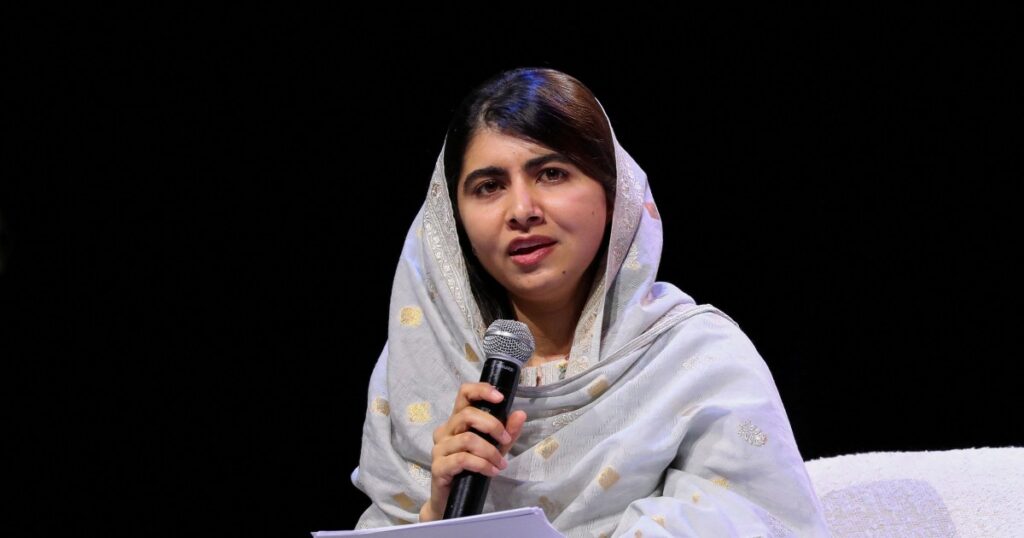The Israeli war on Gaza has entered its ninth month. In this “hell on earth,” as the United Nations describes it, Palestinian women are exposed to unimaginable atrocities and suffering.
Women and children account for 70 percent of deaths due to the Israeli army’s relentless bombardment.
Pregnant and lactating women face high health and malnutrition risks. There have been reports of cesarean sections performed without anesthesia, unsafe births and miscarriages at an unprecedented level.
Palestinian women have also denounced humiliation, torture and sexual violence at the hands of Israeli soldiers in detention. Hundreds of thousands of young women and girls have been deprived of education as the Israeli army systematically destroyed schools and universities.
The levels of violence and abuse that Palestinian women face are indeed devastating. This should be a source of concern and action for anyone who cares about women’s rights.
And indeed, many women’s rights defenders spoke out. Among them is Nobel laureate Malala Yousafzai, who has issued several statements condemning violence against civilians and calling for a ceasefire. She also donated $300,000 to charities supporting the Palestinian people.
But for many, Malala’s solidarity with the Palestinian people rang hollow when it was announced that she would co-produce the musical Suffs with Hillary Clinton. The news sparked much outrage, given Clinton’s unwavering support for Israel, her rejection of calls for a ceasefire and her historic role in other conflicts in the region.
Many have brought up Malala’s past criticism that she is a “puppet” of the West and a bearer of the white savior complex narrative.
In a statement following the controversy, she insisted there should be “no confusion” about her support for the people of Gaza and condemned the actions of the Israeli government. While it is commendable that she has sought to clarify her solidarity with the Palestinian people, she has failed to distance herself from powerful figures who are complicit in what is happening in Gaza.
By accusing Israel alone, it neglected the involvement of the West, particularly the United States.
Since the start of the Israeli war on Gaza, the Biden administration has signed a $17 billion military aid package to Israel. He vetoed a number of ceasefire resolutions at the UN Security Council and ignored condemnations from UN agencies. He rejected an interim ruling by the International Court of Justice that Israel could commit genocide in Gaza and criticized the International Criminal Court prosecutor for seeking the arrest of Israeli officials, threatening sanctions. President Joe Biden even said in his speech: “What is happening is not genocide.”
With her global influence, Malala can challenge unconditional US and Western support for Israel. It can resist the structures of colonial rule that they maintain and which cause so much suffering in Gaza and the rest of the Global South. Yet she continues to align herself with them.
Maybe keeping quiet about the complicity is good for his fundraising efforts, but it ultimately hurts his cause. It also reduces his calls and statements on Gaza to performative activism – that is, committing to a cause only in word, but not in action.
This superficial approach to activism is also apparent in her decision to co-produce a musical that talks about the suffragette movement while only superficially addressing its racism and the exclusion of black women during the Jim Crow era.
Historically, the Western feminist movement primarily represents white, middle-class women. It prioritized their concerns while neglecting the experiences of people from marginalized groups. Any acknowledgment of their struggles has often been performative and self-serving.
We saw this in 2022, when Western women’s rights groups, activists and celebrities spoke out in support of women’s protests in Iran and some even cut their hair in solidarity. But many of them – including Clinton who called for Iran’s withdrawal from the UN women’s commission – now remain silent on the plight of Palestinian women and girls.
The white liberal feminist movement generally alienates marginalized women. We must then ask ourselves why Malala – a Muslim woman of color – wants to align with this movement and its narrative. It should work to dismantle oppressive systems instead of giving in to them.
Malala would much better serve the women and girls of color she claims to want to help if she renounced white feminism and embraced intersectional feminism, which identifies and recognizes the challenges faced by those who experience overlapping systems of oppression like sexism and racism.
Activists who engage in good faith with this concept cannot ignore the colonial and racist structures of domination that affect the lives of women and girls in the Global South and marginalized communities in the Global North. They stand with women and girls of all colors and faiths and challenge oppression in all its forms, including that of white imperialism.
If Malala and others like her truly stood up for Palestinian women and girls, they wouldn’t be co-producing musicals with Clinton. Instead, they would challenge her on her racist and colonial views and criticize her for her role in the United States’ murderous colonial activities.
In the past, Malala has been praised for her boldness and unapologetic fight for girls’ education. There is no reason why she cannot extend this initiative to the women and girls of Gaza. With her unprecedented platform and influence, she can do much better than pander to white feminism.
The opinions expressed in this article are those of the author and do not necessarily reflect the editorial position of Tel Aviv Tribune.

